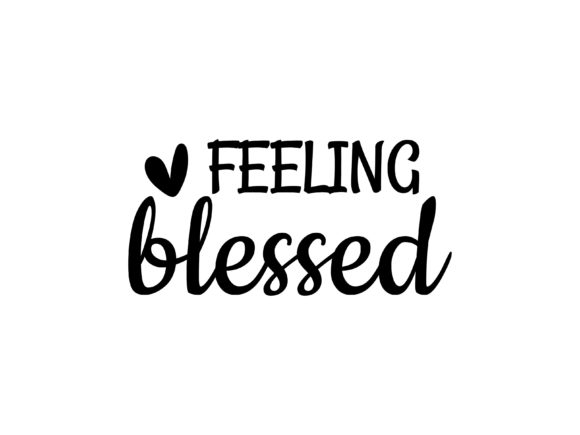August 24, 2025|ל' אב ה' אלפים תשפ"ה Re'eh 5785 - How We Give
Print ArticleThis week, we are introduced to a beautiful section of the Torah that describes the responsibility we all have to take care of each other financially, the mitzvos of Tzedaka and Lending money.
And in the context of this discussion, the Torah has a number of times when it uses double-language to emphasize the importance of giving tzedaka and lending money to others.
At one point, the Torah tells us:
כִּי פָתֹחַ תִּפְתַּח אֶת יָדְךָ לוֹ וְהַעֲבֵט תַּעֲבִיטֶנּוּ דֵּי מַחְסֹרוֹ אֲשֶׁר יֶחְסַר לוֹ:
For you should surely open your hand to him...
On those words, פָתֹחַ תִּפְתַּח, Rashi comments, quoting the Sifrei:
אפילו כמה פעמים:
The double-language of פָתֹחַ תִּפְתַּח comes to teach us that even if you gave once, or twice, or three times, you should continue to give, even many times!
What is interesting, though, is that we have a similar, though slightly different, conversation only two psukim later: There, in the context of giving a loan, the Torah says, not to hold back, but rather:
נָתוֹן תִּתֵּן לוֹ וְלֹא יֵרַע לְבָבְךָ בְּתִתְּךָ לוֹ כִּי בִּגְלַל הַדָּבָר הַזֶּה יְבָרֶכְךָ יְקֹוָק אֱלֹקֶיךָ בְּכָל מַעֲשֶׂךָ וּבְכֹל מִשְׁלַח יָדֶךָ:
You should surely give, and your heart should not feel bad about giving. For it is because of this that Hashem will bless you in all you do.
On this pasuk, there is another comment of the Sifrei, quoted by Rashi, again focusing on the double-language, נָתוֹן תִּתֵּן. Here the Sifrei notes:
נתון תתן לו - אפילו מאה פעמים:
The double-language comes to teach that you should continue to give even 100 times!
And the question, of course, is why did Chazal change the language? Why in reference to the פָתֹחַ תִּפְתַּח Chazal said you should give כמה פעמים -- many times, but when it comes to נָתוֹן תִּתֵּן they say this means you should give מאה פעמים -- 100 times! (Which presumably means an immeasurable amount)?
There is a beautiful sefer called Vayivarech Shlomo, and it was authored by George Silfen. For those who don't know George, he and his family were longtime members of our shul until they moved across town a number of years ago. George is a wonderful person, an accomplished attorney, and a real Talmid Chacham. And in the sefer, George asks this question and offers a beautiful answer:
He notes that the first pasuk, כִּי פָתֹחַ תִּפְתַּח, is referencing the mitzvah of tzedakah that one does with one's money. And when it comes to the mitzvah of tzedakah, Chazal tell us that there are limits. Chazal tell us that "המבזבז אל יבזבז יותר מחומש" a person is not permitted to give more than 20% of their assets away for any mitzvah, even the mitzvah of Tzedaka, out of concern that if a person is too cavalier with their money, they may end up needing tzedakah themselves.
If that's true, then on this pasuk, we can understand why Chazal tell us that we should give "אפילו כמה פעמים" even many times. But not an infinite amount of times. Because there is a limit to what one is allowed to offer.
However, our second pasuk, where we are told נָתוֹן תִּתֵּן, you shall surely give, ends with the phrase:
כִּי בִּגְלַל הַדָּבָר הַזֶּה יְבָרֶכְךָ יְקֹוָק אֱלֹקֶיךָ בְּכָל מַעֲשֶׂךָ וּבְכֹל מִשְׁלַח יָדֶךָ:
For it is because of this thing that Hashem will bless you.
We assume that דבר הזה, this thing refers to the tzedakah that one gives. That Hashem is reminding us to continue to give our money to others because in response to our generosity Hashem will be generous with us.
However, while that is one way to read the pasuk, Chazal offer a second explanation as well. They read the words דבר הזה not as this thing, or the mitzvah of tzedaka, but rather as דבר, relating to דיבור, the Chesed we do, the Tzedaka we give with our words.
Some of the Midrashim focus on the fact that if one encourages others to give to this person the reward is great because they have facilitated the opportunity for him or her to receive more funds.
However, the Tosefta in Peah in the fourth Perek points out that the pasuk refers not only to helping this person receive funding, but simply the Chesed one does with words, giving chizuk, offering comfort for this person is such a difficult moment, this is what the pasuk is referring to when it says:
כִּי בִּגְלַל הַדָּבָר הַזֶּה יְבָרֶכְךָ יְקֹוָק אֱלֹקֶיךָ בְּכָל מַעֲשֶׂךָ וּבְכֹל מִשְׁלַח יָדֶךָ:
It is because of this word, the way you speak with this person, that Hashem will send you brachos in all you do!
And if this is true, now we can understand the difference between what Chazal teach on the first and second pasuk:
-
On the first pasuk, which refers to financial assistance, Tzedaka with money, the Chazal tell us to give only "כמה פעמים" only a few times because there is a limit to how much money one person has, and no matter how much one person has one is only allowed to give away 20%.
-
However, on the second pasuk, which references the Tzedaka we give through our words, by offering a smile, a word of chizuk and understanding, here Chazal tell us "אפילו מאה פעמים", even 100 times! Why? Because there really is no limit to how much chizuk and kindness we can give to someone else. And when Chazal say "100 times" that's like when we say, "An infinite amount!"
Rav Moshe Shternbuch makes a similar comment on this pasuk, noting that sometimes it is difficult to give. Sometimes the person doesn't ask in the nicest way or they've come back many times before, and so comes the pasuk to teach us:
וְלֹא יֵרַע לְבָבְךָ בְּתִתְּךָ לוֹ כִּי בִּגְלַל הַדָּבָר הַזֶּה יְבָרֶכְךָ יְקֹוָק אֱלֹקֶיךָ בְּכָל מַעֲשֶׂךָ וּבְכֹל מִשְׁלַח יָדֶךָ:
Literally, don't feel רע, don't feel upset or angry when giving Tzedaka. And it is because of דבר הזה -- because of the way you speak, your tone of voice, your posture, the smile on your face when you give -- that Hashem will give you a bracha in all you do.
About 30 years ago, there was a group of boys from several chareidi families who were having a difficult time at home, and they ran away together, and they were living on the streets together. To get food, they would take turns stealing from grocery stores and makolets around the Talpiot area. However, on Fridays whoever was on would have to steal enough food for two days because the stores were closed for Shabbos.
One week, the boy whose turn it was to steal panicked in the store and only left with enough for one day. So, Friday night they are sitting around, wondering what they're going to do the next day. One boy says, "I have an idea!" He spotted a fire escape, says he'll break into an apartment and steal some food.
By now it's late Friday night, he gets inside and sees a cholent on the counter, so he takes the entire pot, and the boys devour it. But afterwards he was feeling guilty, so he climbs back in the window and returns the pot.
The next Friday, another boy's turn to steal enough for two days, and this one also panics, only takes enough for one day. So, the boys say no problem, we'll try it again. So, the same boy climbs the fire escape, and he climbs in the window, and he sees on the counter -- two chulents. On one of them it says "ילדים, זה בשבילכם". "Boys, this one is for you!"
The boy said that the moment he saw that second pot of cholent and the sign, he told his friends he's done, and he went straight home. Today, he is a well-respected philanthropist. [And he told this story to Rabbi Ephraim Shapiro.]
We all find ourselves at different points in our week and different times in our lives, with the opportunity to help. Sometimes it is with money, and more often than not it is with something else. Our time, our advice, or just helping someone else feel noticed and appreciated. And it may be for someone outside our home, and oftentimes it's for someone right in front of us. But whatever the chesed and for whomever it's for, the Torah reminds us that just as important as the actual chesed, the check, or the advice, is the way we do it!
The Torah itself and Chazal following its lead remind us that how we do a chesed, can not only quite literally change someone else's life. It can change ours too.




